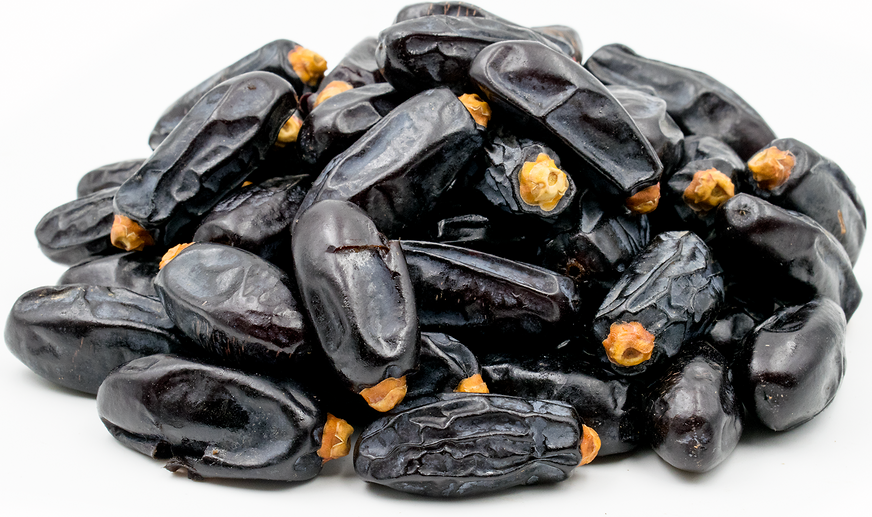
Kurma Safawi Malaysia: Factors Influencing Date Pricing
Introduction
Dates are not only delicious and nutritious fruits but also hold cultural and religious significance in many parts of the world. In Malaysia, one of the popular date varieties is Kurma Safawi. Known for its rich flavor and texture, Kurma Safawi Malaysia has gained a considerable following among date enthusiasts and consumers.
However, the pricing of Safawi dates and other date varieties in the Malaysian market can vary significantly based on several factors. In this blog post, we will delve into these factors and explore the dynamics that influence the pricing of Safawi dates in Malaysia.
The Cultivation of Kurma Safawi
Safawi dates are primarily cultivated in the arid regions of Saudi Arabia, Iran, and Pakistan. However, in recent years, Malaysia has also started cultivating this variety, albeit on a smaller scale. The cultivation process involves specific techniques to ensure optimal growth and flavor.
Factors such as climate, soil conditions, and agricultural practices play a crucial role in determining the quality and yield of Kurma Safawi. In Malaysia, the cultivation of Kurma Safawi is primarily concentrated in states like Perlis, Kedah, and Johor, where the climate and soil conditions are favorable for date farming.
Despite the efforts to cultivate Kurma Safawi locally, the majority of the supply in the Malaysian market is still imported. The reliance on imports can impact the pricing due to factors such as transportation costs, import duties, and exchange rates.
Supply and Demand Dynamics
Like any other commodity, the pricing of Safawi dates is influenced by the interplay between supply and demand. Fluctuations in the availability of dates can affect their prices in the market.
During the holy month of Ramadan, the demand for dates, including Kurma Safawi, surges as they are traditionally consumed to break the fast. This increased demand can result in higher prices due to the limited supply available to meet the heightened consumer needs.
Furthermore, the overall demand for dates in Malaysia is influenced by various factors, such as cultural preferences, religious practices, and dietary choices. As the popularity and awareness of the health benefits of dates continue to grow, the demand for Kurma Safawi and other date varieties may also increase, leading to potential price fluctuations.
Quality and Grading
The quality and grading of dates, including Safawi dates, also play a significant role in determining their pricing. Dates are classified based on their size, texture, moisture content, and overall appearance.
In Malaysia, dates are commonly graded as premium, medium, or lower grade based on these factors. Premium-grade dates, which exhibit superior quality and appearance, are often priced higher compared to lower-grade dates. The grading process ensures that consumers can make informed choices based on their preferences and budget.
Import Costs and Trade Policies
As mentioned earlier, Malaysia relies on imports to meet the demand for Kurma Safawi and other date varieties. The costs associated with importing dates, including shipping charges, customs duties, and taxes, can impact the final pricing in the Malaysian market.
Changes in trade policies, such as import restrictions or tariffs, can also influence the prices of imported dates. Fluctuations in currency exchange rates between the exporting countries and Malaysia can further impact the pricing dynamics.
Key Highlights:
Kurma Safawi is a popular date variety in Malaysia known for its rich flavor and texture.
The pricing of dates, including Safawi dates, in the Malaysian market is influenced by various factors.
The cultivation process, supply and demand dynamics, quality and grading, and import costs are among the key factors affecting date pricing.
Kurma Safawi cultivation in Malaysia is still relatively small-scale, resulting in a significant reliance on imported supply.
Demand for dates, especially during Ramadan, can lead to price fluctuations due to limited supply.
Quality and grading play a vital role in determining the pricing of dates, with premium-grade dates commanding higher prices.
Import costs, including shipping charges and customs duties, along with trade policies and currency exchange rates, can impact date pricing in the Malaysian market.
Final Verdict
In conclusion, the pricing of Safawi dates and other date varieties in the Malaysian market is influenced by a combination of factors, including cultivation practices, supply and demand dynamics, quality and grading, and import costs. The cultivation of Kurma Safawi in Malaysia, although growing, still relies heavily on imports, which can affect pricing due to transportation costs and exchange rates. The demand for dates, particularly during Ramadan, can lead to price fluctuations as the limited supply struggles to meet the increased consumer needs. The quality and grading of dates also play a significant role, with premium-grade dates commanding higher prices. Additionally, import costs and trade policies, such as customs duties and currency exchange rates, can impact the final pricing in the Malaysian market.
Understanding these factors can provide valuable insights into the pricing dynamics of Safawi dates and other date varieties in Malaysia. Whether you’re a date enthusiast, a consumer looking for premium-quality dates, or a business involved in the date industry, being aware of these factors can help you make informed decisions and navigate the market effectively.
So, the next time you savor the deliciousness of Safawi dates, remember the intricate factors that contribute to its pricing. From cultivation techniques to supply and demand dynamics, each element plays a role in shaping the market for this beloved date variety in Malaysia.